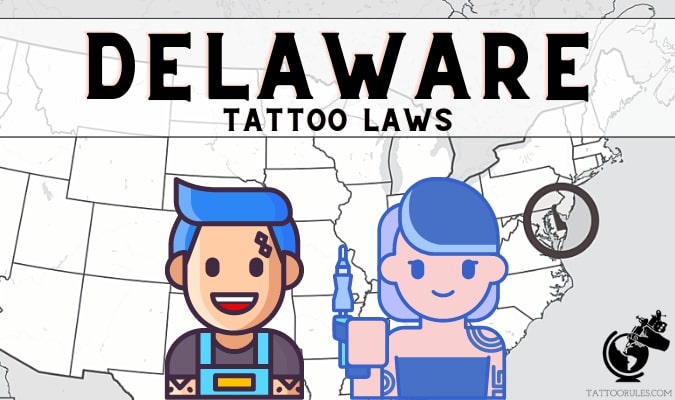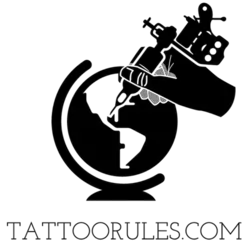Delaware is known for many things. People love living there or traveling to the state for a variety of reasons. The state is home to some of the best beaches on the east coast, as well as great hiking and biking trails. It also has a rich history, dating back to the time of the American Revolution.
One thing that Delaware is especially known for is its tax laws. The state has very favorable tax laws for businesses, which has led to it being home to a number of large companies. The state also has no sales tax, which makes it a great place to shop.
What’s also worth noting, Delaware is a great hub for tattoo enthusiasts from the US and abroad. The state has a number of tattoo shops and parlors, as well as a thriving community of tattoo artists. If you’re looking to get inked, Delaware is definitely the place to be.
Despite all the positivity, Delaware, akin to other states in the US, has some regulations which mean that not everyone is eligible to get the ink work done legally.
If you’ve been considering your first (or next) tattoo to be done in Delaware, stick with us for a few minutes – so that you know you can get it legally.
Delaware Tattoo Laws – All You Need to Know

Tattoo restrictions & regulations in Delaware apply to clients as well as those performing the art.
Tattoo Laws for Clients
So, what is the legal tattoo age in Delaware?
Just like every other region of the US, Delaware prohibits tattoos for anyone under the age of 18.
Thankfully, even if you’re still a minor but determined to get your tattoo done in the state, you can do so on the condition that you can provide parental consent. A parent- or legal guardian-signed document is enough to get inked in most parlors across Delaware.
However, be aware that you should have a valid ID with you, as well as a valid document confirming the ID of your parent/legal guardian. The tattoo artist might also ask for a birth certificate to make things official.
It is also a violation to tattoo someone who has been drinking alcohol, whether it be beer, wine, or spirits. Drugs are also a big no-no.
What’s interesting, in case the client-related law is broken, it’s the tattoo artist who faces the penalties and not the person who got tattooed. So, if you’re underage and manage to get inked without your parents’ permission, the tattoo artist is the one who will have to face legal consequences. At present, the maximum fine is $1,000.
Tattoo Laws for Artists
As already mentioned, if you’re a tattoo artist you have to be extremely strict when choosing your clientele. A $1,000 is certainly not something to scoff at.
In Delaware, it is mandatory for every tattoo artist to have a license in order to operate legally. It’s prohibited to tattoo in homes or any other space which is not up to the state’s health code requirements. It comes as no surprise then that all the tattoo parlors in Delaware need to be licensed and inspected by the state.
Also, it goes without saying the whole procedure needs to be as sanitary as possible. All the instruments which come into contact with blood need to be properly sterilized before each use. The needles need to be new or properly sanitized as well and an artist needs to wear gloves at all times.
As a tattoo artist, you have a duty to decline to tattoo someone if they’re intoxicated. You should also have the right to refuse anyone who seems unable to make decisions for themselves – such as those with mental disabilities.
Do remember that you should keep a record of all your clients, as well as copies of their IDs and parental consent forms (in case they’re minors).
Tattoo artists are, naturally, free to refuse to work with a client whose tattoo design is offensive in any way or goes against the artist’s morals and values. The artist also has a right to decline the job if he feels uncomfortable tattooing certain body parts.
References
The mentioned Delaware tattoo laws are based on official sources:


